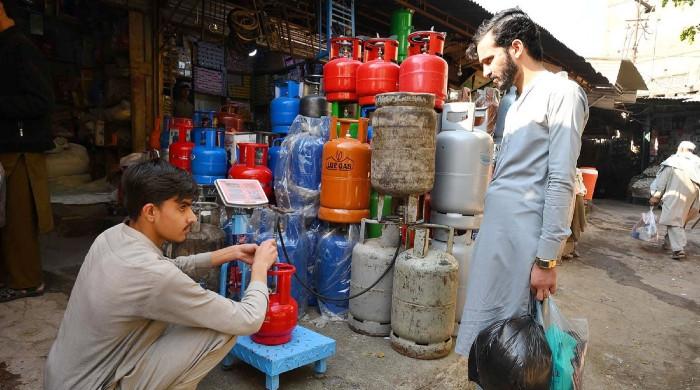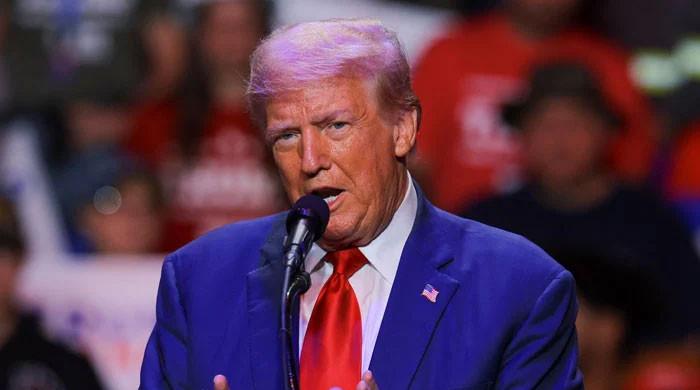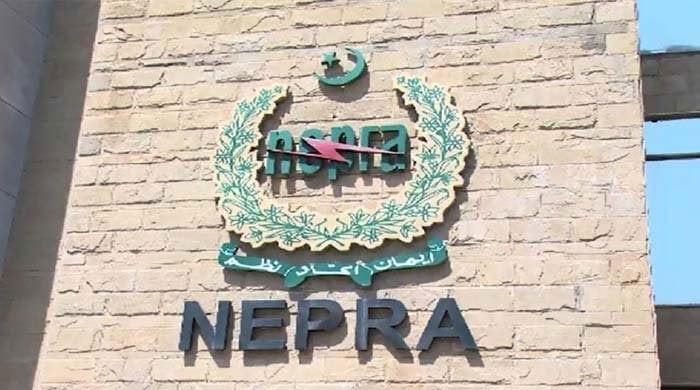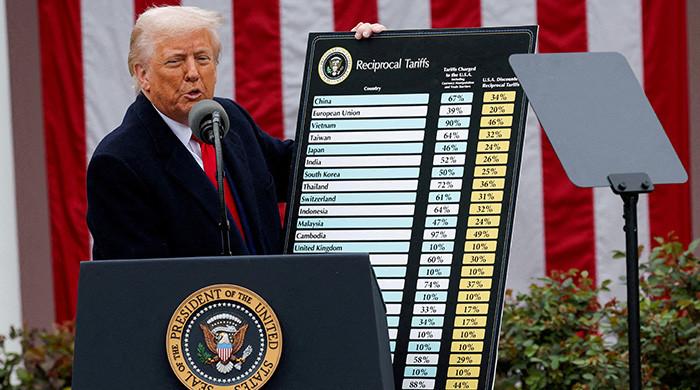Rupee breaks losing streak against dollar
Pakistani rupee closes at 239.65 against US dollar in interbank market
September 23, 2022
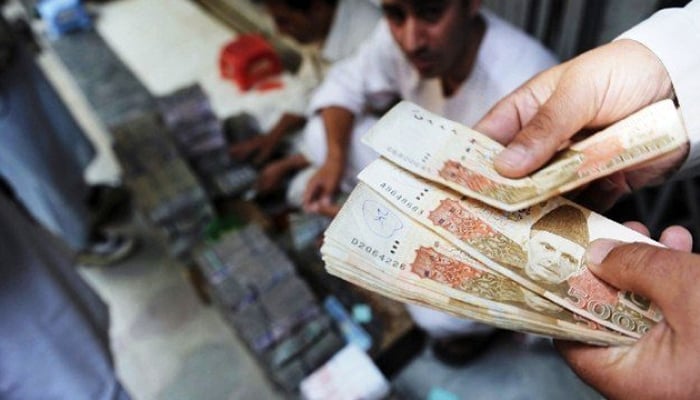
- Pakistani rupee closes at 239.65 against US dollar.
- Rupee's losing streak breaks after 15 consecutive sessions.
- Analyst cites correction in market for rupee's strength.
KARACHI: The Pakistani rupee on Friday broke its losing streak against the dollar after continuously depreciating for 15 consecutive sessions as the economy suffers following catastrophic floods.
At the closing of the interbank market's trade, the rupee gained Rs0.06 to reach 239.65, according to the State Bank of Pakistan (SBP), up in value from the previous session's close of 239.71 — just 0.23 short of an all-time low.
Arif Habib Limited's Head of Research Tahir Abbas told Geo.tv that the rupee's strength came after a correction following the expected inflow of funds from multilateral money lenders.
Abbas said that the market responded to the news of the World Bank (WB) planning to provide $1.7 billion to Pakistan in terms of flood relief.
The analyst mentioned that the government being in talks with the International Monetary Fund (IMF) for relaxing the conditions of the current programme was also a positive indicator for the market.
Analyst Yousuf Rahman at KASB Securities told The News that debt servicing was one of the reasons behind the rupee's consistent decline as gross financing needs for the year are estimated at $32 billion.
Rahman also noted that floods have forced the government to import vegetables, grains, and cotton to replace damaged crops — increasing the pressure on the rupee.
After recent floods added to the country's financial crisis, the Financial Times, citing a UN policy memo, reported that Pakistan should suspend international debt repayments and restructure loans with creditors.
The memorandum, which the UN Development Programme will share with Pakistan's government this week, states that the country's creditors should consider debt relief so that policymakers can prioritise financing its disaster response over loan repayment, the newspaper said.
Floods have affected 33 million Pakistanis, inflicted billions of dollars in damage, and killed over 1,500 people — creating concern that Pakistan will not meet its debts. Pakistan earlier estimated damage at $30 billion, and both the government and UN Secretary-General Antonio Guterres have blamed the flooding on climate change.
The memo further proposed debt restructuring or swaps, where creditors would let go of repayments in exchange for Pakistan agreeing to invest in climate change-resilient infrastructure, FT said.
In line with the dominant trend over the last several weeks, the country’s foreign exchange reserves held by the State Bank of Pakistan (SBP) also declined by 3.21% to $8,346.4 million as of September 16.





